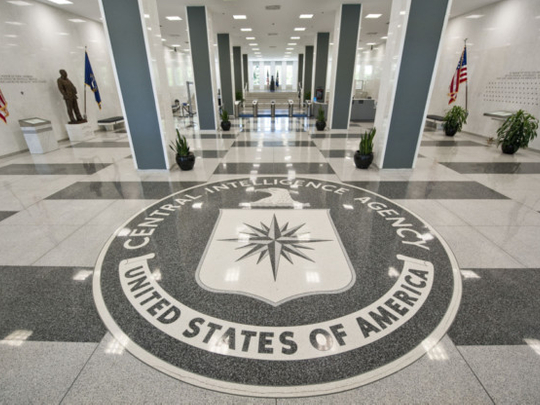
The CIA spying on the Senate is the constitutional equivalent of the Watergate break-in. In both cases, the executive branch attacked the very foundations of the US system of checks and balances.
President Barack Obama is not president Richard Nixon. He hasn’t been implicated personally in organising this constitutional assault. But he is wrong to support the limited response of his Central Intelligence Agency director, John Brennan, who is trying to defer serious action by simply creating an “accountability panel” to consider “potential disciplinary measures” or “systemic issues.”
Congress should not allow Brennan’s gambit to succeed. It should respond to the latest breach with decisive measures that restore the constitutional credibility of the intelligence community.
Harry Truman and Congress knew that they were playing with fire in creating a permanent spy agency after the Second World War. To protect the integrity of the constitutional system, they barred the CIA from all forms of domestic spying.
But in response to 9/11 the National Security Act of 2004 enabled the agency to remove many of the barriers that separated it from domestic operations to permit a coordinated defence against international terrorism. This necessary step increased the danger that the national security establishment would intervene unconstitutionally in domestic politics.
Obama’s election paradoxically increased this threat. As long as George W. Bush was in the White House, intelligence operatives could count on him to protect them against retribution for any lawless behaviour during the post-September 11 panic. But all bets were off once Obama won the presidency after denouncing torture in legal black holes like Guantanamo and Abu Ghraib. It is hardly surprising that the agency, moving reflexively to protect itself and its turf, would be tempted to spy on its Senate watchdog.
Thanks to CIA slow-walking, it took far too long for the Senate Intelligence Committee to work up its monumental report on the agency’s misconduct, the so-called torture report. As the work was finally reaching completion, its potential for damage was multiplied by the Edward Snowden affair. The steady stream of revelations about the scope of surveillance forced James Clapper, the director of National Intelligence, to admit he had lied to Congress about the extent of domestic spying. Worse yet for the intelligence agencies, it led the Federal Intelligence Surveillance Court to publish confidential opinions condemning them for sabotaging effective enforcement of its decisions.
The escalating scandal made the prospect of Senate Intelligence Committee condemnation even more devastating. Thrown on the defensive, CIA headquarters responded to the challenge by breaking into the Senate computers — and by not taking the constitution seriously. Brennan’s initial response displayed the same breakdown in the CIA’s constitutional culture. Rather than demanding a serious accounting from his subordinates before going public, he immediately denied that any wrongdoing had occurred.
Political counteroffensive
While all this was going on, Obama was pondering a serious response to the pervasive surveillance abuses. In April 2013, he assembled a blue-ribbon panel of retired leaders of the intelligence community, as well as leading constitutionalists, who issued a unanimous 46-point reform programme in December. In an admirable show of bipartisanship, Republicans on the House Intelligence Committee then included many of the panel’s proposals in their own reform bill.
At that point, the intelligence establishment launched a political counteroffensive. With Obama remaining on the sidelines, it persuaded the committee to eliminate many of his own panel’s recommendations from its final proposal, leading the House to pass a bill that was a parody of its former self.
The president is playing the same passive role in supporting his CIA director’s effort to delay serious action in response to the latest scandal. Unless Congress and the public force a reappraisal, Obama may continue to let the security establishment call the shots.
The constitution demands action. Given the culture of lawlessness on display, the only way “to take care that the laws be faithfully executed” is to create stronger institutions that systematically maintain legal control over the intelligence community.
The president’s blue-ribbon panel took steps in this direction. Most important, it proposed a sweeping reform of the Foreign Intelligence Surveillance Court that would have made it a far more credible legal watchdog. But the spy agencies mounted such fierce opposition that Obama distanced himself from this initiative. Instead of caving in, the president should have strengthened his commission’s recommendations. The panel had already proposed the appointment of a public interest advocate to argue for civil liberties before its newly constituted intelligence court. Similar reasoning supports the creation of an independent “office of legal enforcement” dedicated to assuring agency compliance with the court’s decisions on a day-to-day basis.
The Senate Judiciary Committee should fill this void when it returns from summer vacation by framing its own reform legislation. At present, committee Chairman Patrick Leahy has developed a proposal that closes some of the yawning loopholes left open by the House bill. But he has not gone far enough in proposing the fundamental institutional changes that are required to assure that his new legal standards will be impartially interpreted and rigorously enforced.
Unless this is corrected, congressional intelligence “reform” will be a prelude to a deepening constitutional crisis in the years ahead.
— Los Angeles Times
Bruce Ackerman is a professor of law and political science at Yale University. His most recent book is We the People: The Civil Rights Revolution.









